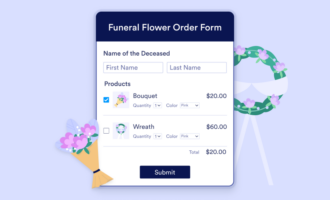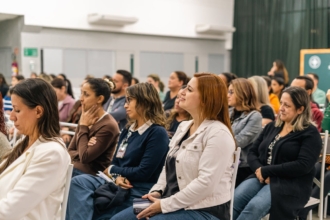If you’re wondering how to become an event planner, rest assured there’s more than one path you can take to achieve that goal. But before you step foot on any one of these paths, ask yourself if you’re sure you want to pursue this career.
Forbes famously ranked “event coordinator” fifth on a 2017 list of most stressful jobs. The only four jobs that ranked worse for stress were, in order of increasing stress, police officer, airline pilot, firefighter, and enlisted military personnel.
Event planning is as stressful as a dangerous job, but thankfully it’s not dangerous. Event planning is an appealing career for people who are well-organized, strategic thinkers eager for additional responsibility. Those traits aren’t something a person can easily teach you, but if you meet that description, this could be the job — and the career — for you.
The academic route
A career in event management is basically a career in business focused on a particular niche. If you’re planning to study business in college, consider getting a bachelor’s degree in meeting and event management.
The best programs at prominent state universities teach topics specific to the field — such as event sales and sponsorships — as well as more general business knowledge — such as human resource management, accounting, and business negotiating. It’s not uncommon for event managers to have degrees in marketing, public relations, management, or hospitality management.
Many community colleges offer two-year degrees in event management. These programs are a good opportunity for people already working in the events industry who are looking to advance in their careers.
The self-directed apprenticeship
Event planning is an industry inclined to give a capable person who is willing to take responsibility a chance to show what they can do. The stress of the job takes such a toll that planners move up or burn out, so there’s always a need for frontline planners. The key to getting your foot in the door is some experience.
Getting relevant experience in event management before you’ve landed your first job isn’t nearly as hard it might sound. Nonprofit organizations of all sorts routinely have informational meetings, public lectures and presentations, fundraising galas, and many other events. All of these events rely on willing volunteers. Volunteering to set up chairs and take tickets at the door can quickly lead to a role (albeit an unpaid one) managing entire events. That experience, and the drive required to obtain it, will impress the hiring manager at any event planning agency.
Professional certifications
Many business professionals find their way into event planning by following opportunities rather than by design. Large organizations often hold events, whether for employees, customers, or vendors, and assign duties in house. While many employees dread working at events, a few like the responsibility and the challenge. Event planning becomes an opening for them to move up in the organization.
People who are seizing these opportunities can’t quit their jobs to pursue an academic degree, and besides, they’re gaining valuable on-the-job experience. For these people, a professional certification can be quite valuable. Here are some of the most prominent certifications in the field.
- Certified Special Events Professional. This event management certification has an endorsement from the International Live Events Association and is recognized worldwide. CSEP certification connects event planners to a global community of industry professionals.
- Certified Meetings Professional. Professionals earn the CMP by passing an examination developed by planners from 55 countries. At least 14,000 event planners are CMP certified in event planning best practices.
- Certified Professional in Catering and Events. The National Association for Catering and Events administers the CPCE certification examination. The exam consists of 175 multiple-choice questions that include topics such as accounting, food and beverage management, event marketing, and human resources. CPCE certification is recognized nationwide.
- Certified Government Meeting Professional. Event planning as a government employee is a distinct sub-speciality. Professionals earn CGMP certification by attending a three-day course and passing an examination with 100 multiple-choice questions. Certification demonstrates competency in ethics law and regulations; budgets; and expense tracking to comply with government regulations, rules governing travel by government employees, and government contracting.
Find your niche
There will always be opportunities in event planning for generalists, but developing a specialty is common as an event planner’s career develops. This is particularly true for event planners who launch their own businesses.
Doubtless the best known event planning niche role is the wedding planner — so well known that it was the subject of a popular movie. But it’s not the only niche. There are many successful event planners who specialize in birthday parties, business conferences, fundraisers, trade shows, and many other areas.
Humans are social creatures, so we’ll always seek reasons to gather. An event planner helps bring us together, which is why event planning is a worthwhile and satisfying career for those willing to do the work.























































Send Comment: